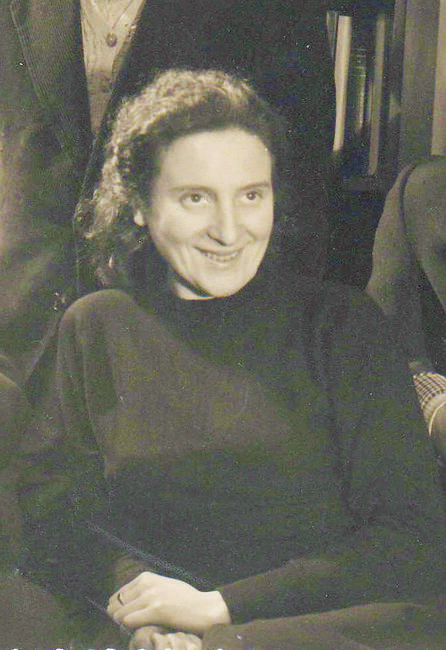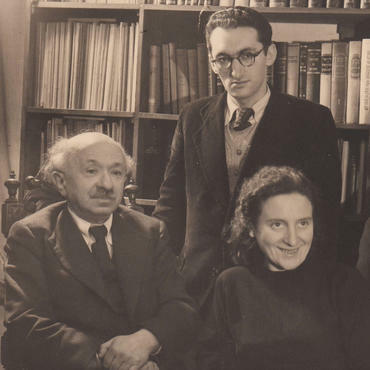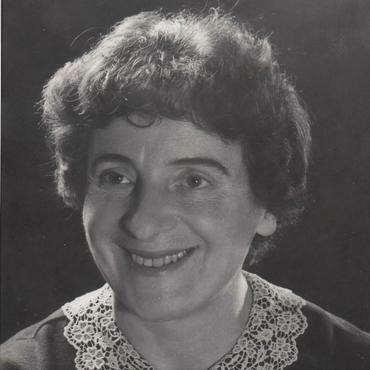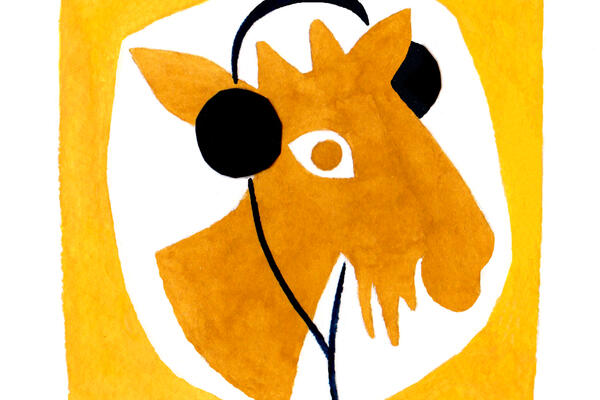
Bergen-Belsen Diary: 1945
With a Translator Profile by Emma Garman
- Written by:
- Chava Rosenfarb
- Translated by:
- Goldie Morgentaler
- Published:
- Fall 2019 / 5780
- Part of issue number:
- 80
Translator Profile: Goldie Morgentaler
Edited from print version
Goldie Morgentaler, a Canadian author and Yiddish translator, began her career earlier than most. At age thirteen, a back operation left her in a body cast and bedridden for two months. Her mother, the late, great Yiddish writer Chava Rosenfarb, decided they should collaborate on a translation of The Bird of the Ghetto, Rosenfarb’s play about the Vilna Uprising. “I was not very willing,” Morgentaler recalls. “She would sit on my bed and give me the Yiddish and ask how I would put it into English.” Rosenfarb had, perhaps, overestimated her teenager’s abilities. “I had the partisans saying things like ‘We need to get the guns, eh,’ because I didn’t know this was a Canadianism!”
[. . . ]
Today a professor of English at Lethbridge University in Alberta, Morgentaler studied at Bennington and Columbia and received her PhD in English literature from McGill. [. . .] In the meantime, Morgentaler has edited Confessions of a Yiddish Writer and Other Essays, a new compilation of Rosenfarb’s nonfiction pieces. The book includes “Bergen-Belsen Diary, 1945,” excerpted in abridged form in this issue.
Written in the Bergen-Belsen displaced-persons camp after the liberation by British forces, these searing and eloquent dispatches were then reworked for publication. In 1948, they appeared as an addendum to Rosenfarb’s debut book of poetry. One entry describes the arrival of a male friend who breaks the news of her father’s death: “We have recovered a friend—but we have lost our father. Joy and sorrow.” That friend was Henry Morgentaler, the future renowned abortion advocate whom Rosenfarb married in 1949.
Goldie Morgentaler, who was born soon after her parents arrived in Canada in 1950, began life speaking Yiddish and became trilingual with English and French. Retaining verbal fluency in Yiddish has proven, however, all but impossible. “When I go to France,” says the former Montrealer,” and I hear the [French] language around me, it starts to come back. Whereas with Yiddish, I’ve nowhere to go.”
The Yiddish writer's vocation is lonely but imperative.
Yet by keeping alive her mother’s literary legacy, Morgentaler can honor Rosenfarb’s fervent commitment to her evanescent native tongue. The Yiddish writer’s vocation, Rosenfarb wrote, is lonely but imperative: “She creates in a vacuum, almost without a readership, out of fidelity to a vanished language; as if to prove that Nazism did not extinguish its last breath, that it is still alive.”
— Emma Garman
EMMA GARMAN has written about books and culture for Newsweek, The Daily Beast, Salon, Tablet, The Awl, The Paris Review Daily, Lapham’s Quarterly, Words Without Borders, Longreads, and many other publications, and she writes for the Paris Review’s blog “Feminize Your Canon."
Bergen-Belsen Diary: 1945
By Chava Rosenfarb, translated by Goldie Morgentaler
Chava Rosenfarb was one of the major Yiddish novelists of the latter twentieth century, as well as one of the major voices of Holocaust fiction. Born in 1923 in Lodz, she survived the Lodz Ghetto, Auschwitz, and Bergen-Belsen, and published her first collection of poetry only two years after the war. After immigrating to Canada in 1950 she continued to write poetry and completed her epic novel Der boym fun lebn (The Tree of Life) in 1972.
(Bergen-Belsen was liberated by the British army on April 15, 1945. Conditions at the camp were so horrendous that the British burned it down in order to stop the spread of typhus and other diseases. They relocated the survivors to a former German army barracks two kilometers from the original camp. This new camp was called Bergen-Belsen Displaced Persons camp. The diary appears to have been written in this DP camp.)
May 6, 1945
Father, where are you?
Today, for the first time, I hold a pencil in my hand. My fingers tremble over the white sheet of paper. Where is your warm, sure hand to cover my trembling fingers and lead them again to open the sacred doors of our Yiddish aleph-beys? When I was a little girl, you guided my hand over the neat white lines. We wrote the word “tate” (father) and there rose such a light from those four small letters that the word itself acquired a soul, and I saw that soul reflected in your loving smile: “Tate.”
I sit near the window. The branches of the large chestnut tree outside reach up to the second floor where we are staying. Today I can see the sky and it is of the purest blue. I want to write: “How beautiful you are, blue sky,” but instead I see your luminous eyes. I can feel your blessings and your dreams, your smile and your longing.
Below my window I hear a commotion. It is nothing serious. Soup is being distributed. Everybody will get a portion. People are impatient, still haunted by the anxiety of yesterday that lives on in them . . . There is a man standing opposite my window. He emerges from the tangled crowd holding his bowl in his hand. He does not go to his room. He does not sit down at the table. Leaning against the stone wall he gulps down the soup as fast as he can. God, how hungry he is!
I shut my eyes. Deliberately I put out of my mind the man standing opposite. And suddenly I see you, Father. It is you. I can see how the strength is returning to your body. You are alive. Perhaps you too are standing somewhere at this very moment with your bowl of soup, leaning against another wall. Is it possible? I ask my heart, but it trembles with uncertainty.
May 7
Wherever I look I see you. No matter what other thoughts come into my mind, you are always there. Where are you, tate? Will I ever be able to caress you and beg your forgiveness? I showed you so little kindness in the lost days of my feverish past. I told you very little of my innermost thoughts. You were so thirsty to know my feelings and I was so stingy in sharing them with you. Where are you now, tate? I want to tell you everything!
Where are you now, tate? I want to tell you everything!
May 8
It is over. Our liberation has come, but she wears a prosaic face. No one has died of joy. No one has gone mad with excitement. When we used to dream of freedom, we bathed her with our tears. We crowned her with the garlands of our smiles and dreams. Now that she is here, she looks like a beggar, and we have nothing to give her.
Through the open window I can hear the loudspeaker announcing that today the war is officially over. Where are you, tate? I want to hug you. The air trembles to the distant salvos of guns. Thin clouds of smoke waft through the air. We celebrate this festive moment with a chunk of dry bread. We have nothing better.

June 18
Nearly six weeks in hospital. I have returned to life again. My body rejoices; my soul weeps. I suspect that it was not my body but my soul that was so ill. Helpless, hopeless, I feel like someone who has spent a long time in a dark cellar and has suddenly come up to the light. I am dazzled, drunk. I squint at the light, without the strength to absorb it.
June 20
I am learning to walk. Today, Mother helped me down the stairs and took me into the yard . . . Why is there no orchestra playing music to the rhythm of my heartbeat? Why is everything and everyone so indifferent? I am learning to walk! At least the sky is decorated with a sparkling sun. I look up at the sky. We are good friends again. It is good to be alive. It is delicious, a delight. I don’t want to think about anything. I want my body to acquire flesh. I want my legs to recover their strength. I want to sing. I want to roll in the grass. I want to run carefree through the fields.
I want my legs to recover their strength. I want to sing. I want to roll in the grass.
July 5
From everywhere men flood into the camp. They are looking for their women. Every knock on the door makes us tremble with anticipation. With each knock someone new comes into our barrack. They come to ask if we have any news, if we know the whereabouts of their loved ones. They look at us with pleading eyes. “Maybe you know something about . . . ? Please, try to remember. Think hard.”
We cannot stay still for long. We run downstairs. There is commotion everywhere as the men move from barrack to barrack. They stand before the open windows and call out long lists of women’s names—wives, daughters, sisters. Then they wait to see if the miracle will happen, if from the depths of the rooms there will appear a beloved face. But they are greeted only by the eyes of strangers staring at them from the windows.
—Where do you come from?—Perhaps you know . . . ? No, he does not know. —And you, young lady, perhaps you remember my little daughter? The camp trembles with expectation. We stop every man we meet. It would be so beautiful if one of these men turned out to be our father. How much strength we would need for such an encounter. When I see from the distance a man resembling my father, my knees give way.
July 8
Tate, this very moment I am calling you with all the power of my being. If you are alive somewhere then surely you feel my anguish. Surely you hear my call. Do not lose hope. If you are alive there is no road too far for me to travel. If you are sick, do not give in. Wait. We will come. Our joy will bring you back to life. We will make you well. We are calling you, tate!
July 19
We have news of Father! By chance we stopped a man in the camp and asked him if he knew anything about Father. Yes, he knew. He was with Father until two days before the liberation.
July 20
Henia and I are going to look for Father. We left the camp this morning.
August 28
We are back in the camp. Why am I telling all this anyway?
For four long weeks we trudged all over Germany. We got lifts on coal wagons, hitched rides with lorries packed with horses. We walked for miles, tired, frightened, with an uneasy feeling in our hearts. We were not the only ones on the road. We met hundreds of lonely children just like us. Hundreds of wandering fathers, hundreds of solitary wives.
It was all for nothing. Somewhere, perhaps in a forest or in a field, lies the mutilated body of our father. Perhaps we passed the very spot and did not hear the mute call of his body. He did not live long enough to feel our arms around his neck; we never even had the chance to kiss his wounds.
When we returned to the camp, the bad news was waiting for us, brought by a friend who has survived. We have recovered a friend—but we have lost our father. Joy and sorrow. Why does the poor heart not break in agony? Our friend found our names on the lists. He told us that Father perished a day before the liberation, killed when an American bomb landed on the train that the Germans were using to transport Dachau prisoners deeper into Germany.
Sept 1
I do not read the names on the lists anymore. I do not go anywhere. I know that I shall never see my father again. Actually I have known this for a long time. I felt it in Auschwitz the day we parted for the last time.
Now I must find all kinds of refined means to deaden my pain. I am going to make a lot of noise. I am going to run, laugh, busy myself with work, do everything I can to stifle the constant longing in my heart. But where does one get the strength for joy? How does one poison longing? Even Nature has lost its charm for me. I am empty of all desires.
I cannot get away from thoughts of my father’s death. I experience it over and over again. I lose myself in thoughts of his lonely suffering—and yet, I am not dying of sorrow. I suppose that there must be still greater depths of pain that I cannot reach.



